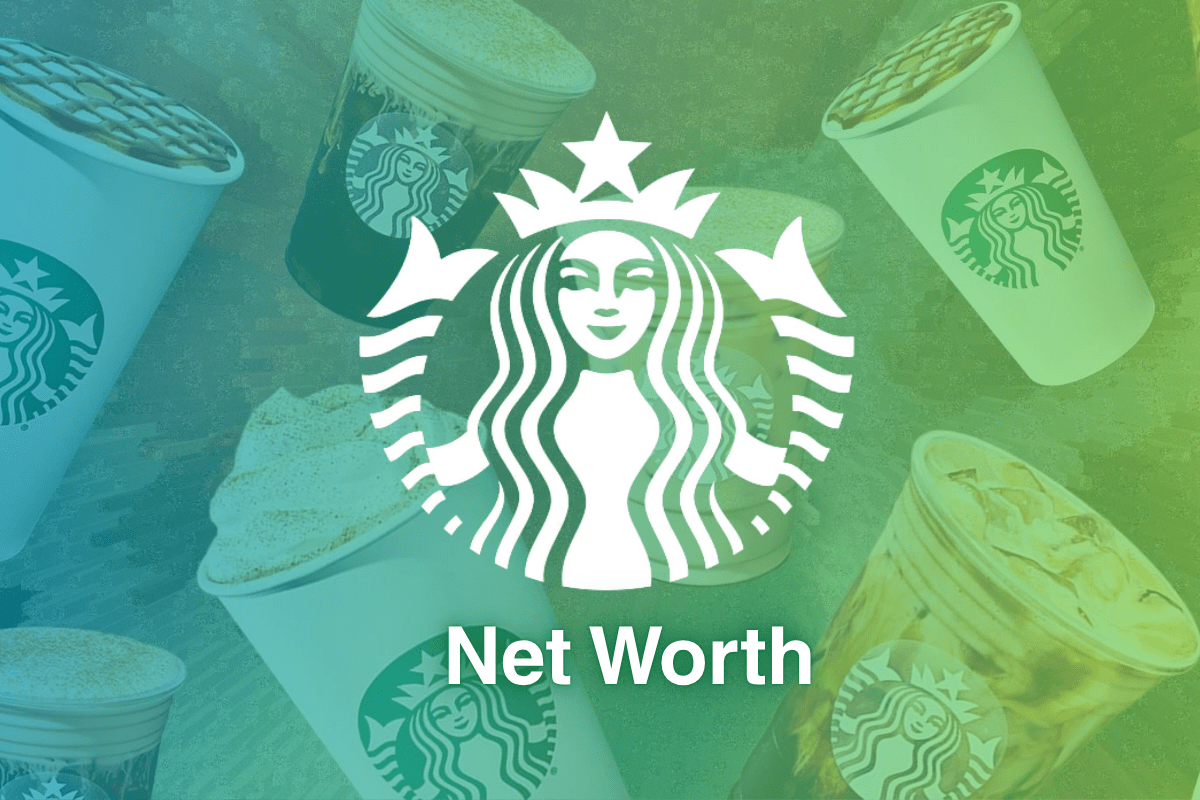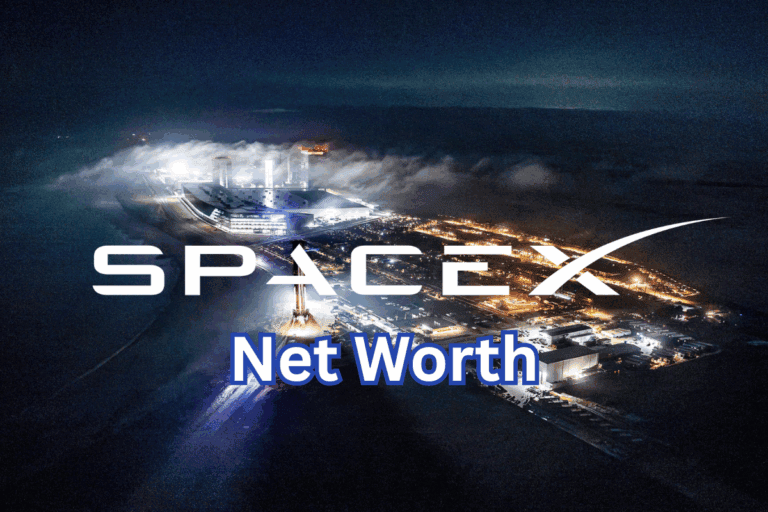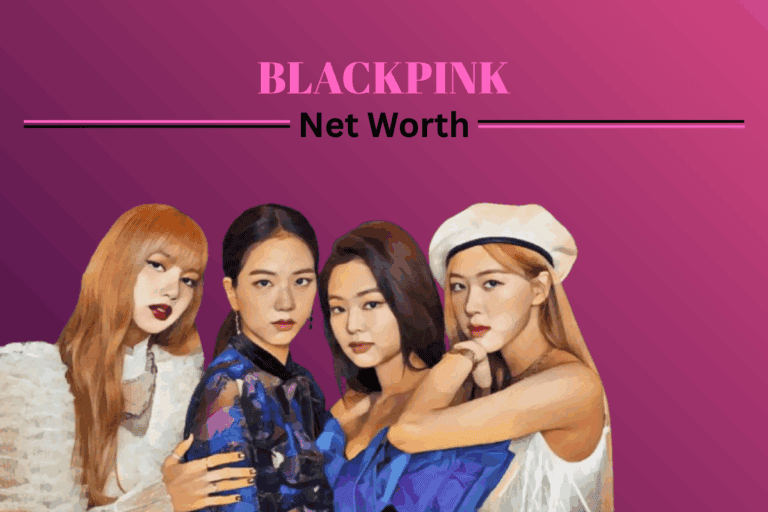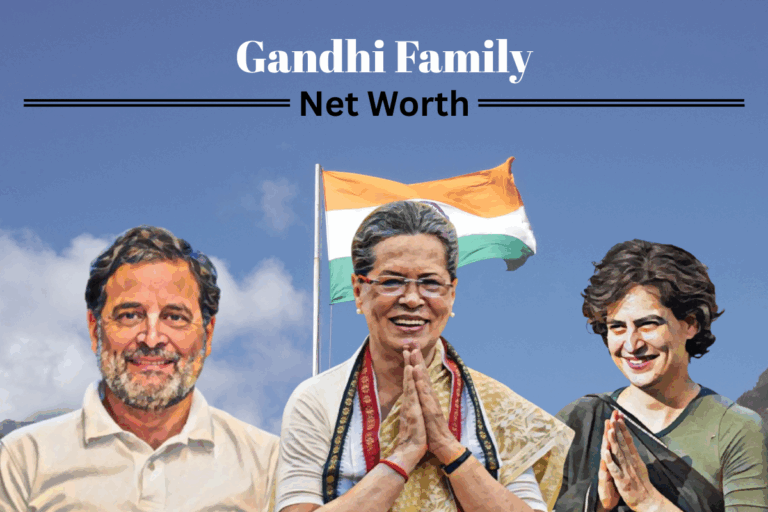A journey that began in 1971 with Jerry Baldwin, Gordon Bowker, and Zev Siegl, opening a store in Seattle to sell high-quality coffee beans, teas, and spices for home use, turned into a multi-million-dollar empire with franchisees across the globe. Starbucks started following the Italian espresso bar culture with the entry of Howard Schultz in 1982. Today, the company is among the top most valuable restaurant brands in the world. Through continuous innovation and a never ending focus on customer experience, Starbucks has pioneered industry standards in employee benefits, sustainability, and digital engagement.
Starbucks Net Worth, Share Price, Revenue
In the current year, the net worth of Starbucks as per its market capitalization is $107.32 billion, reflecting its strong global presence and consistent performance.
The company shares are traded on NASDAQ under the sticker SBUX in the price range of $90–$95 per share. Also, Starbucks reported annual revenue is reported around $36.1 billion, driven by its more than 38,000 stores in over 80 countries and a robust digital ecosystem that includes mobile ordering and a popular rewards program.
| NAME | Starbucks |
|---|---|
| Founder/CEO | Founder: Jerry Baldwin, Zev Siegl, and Gordon Bowker Current CEO: Brian Niccol (Since 2024) |
| Net worth | $107.32 billion (Market Cap) Approx. ₹8,930–₹9,445 billion |
| Valuation | $107.32 billion Approx. ₹8,930–₹9,445 billion |
| Revenue | $36.1 billion (FY 2024) Approx. ₹3,100 billion |
| Stock price | $90–$95 Approx. ₹7,700–₹8,150 per share |
About Starbucks
On 30 March 1971, Jerry Baldwin, Zev Siegl, and Gordon Bowker opened a store in Pike Place Market, Seattle. The place used to sell coffee beans, teas, and spices for home use, with a focus on sourcing and roasting high-quality coffee, drawing inspiration from Alfred Peet of Peet’s Coffee, whose roasting techniques influenced Starbucks’ distinctive blends.
1982 marked the entry of Howard Schultz as the director of retail operations and marketing. He went on a trip to Italy in 1983 and that changed everything because he brought the Italian espresso bar culture to the United States. With this vision, he opened the first coffeehouse-style Starbucks location in downtown Seattle, serving espresso beverages and laying the foundation for the brand’s future.
In 1987, backed from local investors, Schultz acquired Starbucks and merged it with his Il Giornale coffee business, and began expanding beyond Seattle, opening stores in Chicago and Vancouver. Through 1980s and 1990s, the company thrived under his leadership and offered full-health benefits for part-time employees, stock options for all employees and opened the first drive-thru in 1994.
In 1990s, Starbucks launched its iconic products like Frappuccino (1995) and the Starbucks Card (2001), as well as international growth into Japan, the UK, and China. It was 1992 and Starbucks had 165 stores and $75.3 million revenue when it went public using the capital to fuel further expansion.
By the starting of 2000s, the company was already established as a global coffee powerhouse, known for its distinctive in-store experience and commitment to ethical sourcing and sustainability. By then, it had more than 3,500 stores globally, and was using initiatives like Starbucks Card, Wi-Fi in stores, and digital loyalty programs.
In 2008, Howard Schultz returned as CEO and led the company through another transformation, focusing on quality, customer experience, and digital engagement. Today, after 54 years and 3 months, Starbucks is operating in more than 38,000 stores in over 80 countries, generating billions of revenue.
Journey & Expansion
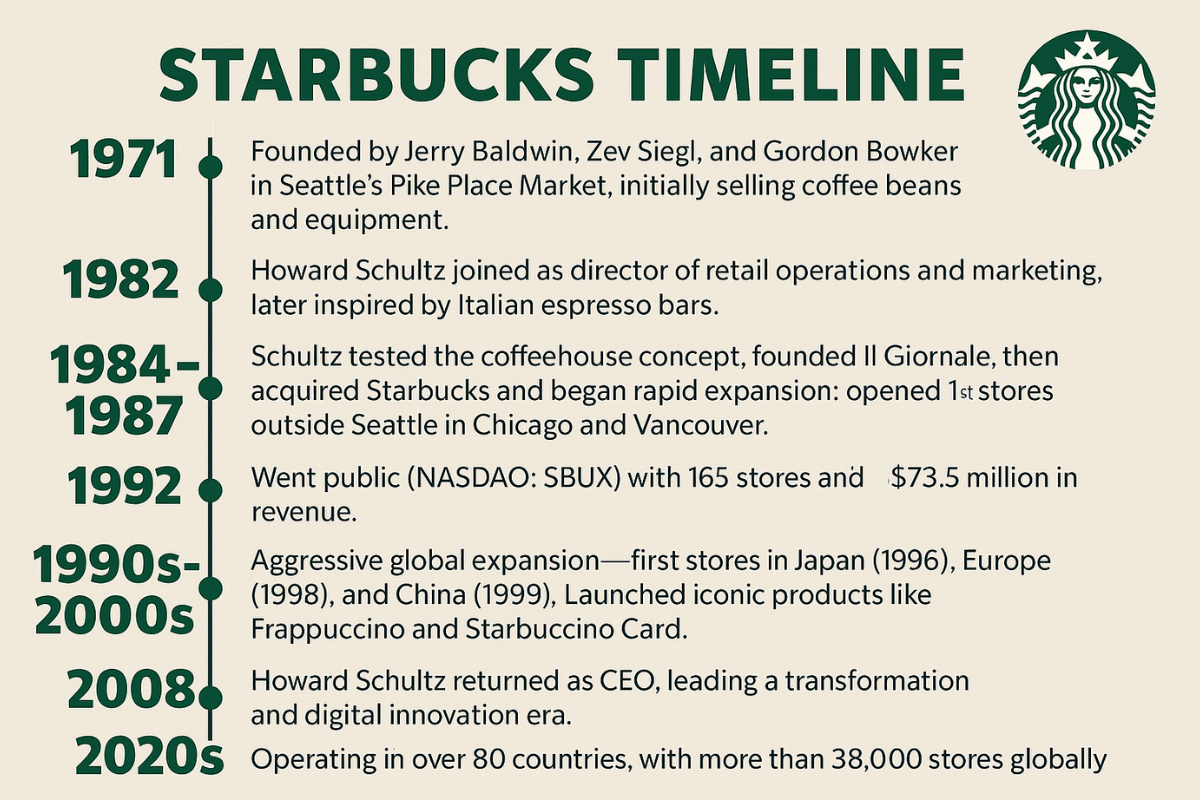
| Year | Milestone/Event | Stores/Financials |
|---|---|---|
| 1971 | First store opens in Seattle | 1 store |
| 1987 | Schultz acquires Starbucks, expansion | 17 stores |
| 1992 | IPO on NASDAQ | 165 stores, $73.5M revenue |
| 1996 | First store in Japan (international) | 1,015 stores |
| 2000 | Enters Australia, Middle East | 3,501 stores |
| 2010 | Free Wi-Fi, digital expansion | 16,858 stores |
| 2024 | Record annual revenue | $36.1B revenue, 38,000+ stores |
| 2025 | Market cap and global presence | $104–$110B, 80+ countries |
Notable Achievements
-
Pioneered the global coffeehouse culture, making premium coffee accessible worldwide.
-
First U.S. company to offer stock options to part-time employees (1991).
-
Leader in sustainability and ethical sourcing, with major investments in fair trade and farmer support.
-
Strong digital ecosystem with the Starbucks app, rewards program, and mobile ordering.
Starbucks Net Worth and Valuation
According to Stock Analysis, Starbucks net worth in the current fiscal year is estimated at $107.32 billion. The company’s valuation aligns with its market capitalization for a publicly traded firm.
-
Market Capitalization (Net Worth):
Starbucks’ market cap is $107.32 billion
In Indian Rupees, this is approximately ₹9.17 trillion
Starbucks Revenue
The reported annual revenue of Starbucks is $36.35 billion for the twelve months of the FY 24-25, reflecting a slight year-over-year decline of 0.5%. In the FY24, the company’s revenue was $36.18 billion, showing modest growth from the previous year. Talking about Starbucks revenue in Indian rupees, then it is approximately ₹3.10 trillion.
Recent quarterly results show:
-
Q1 FY2025 (ended December 29, 2024): $9.4 billion USD in consolidated net revenues.
-
Q2 FY2025 (ended March 30, 2025): $8.8 billion USD in consolidated net revenues.
Starbucks Share Price and Market Share
The company’s shares are traded on NASDAQ: SBUX with the share price $94.44/share (current price), and the share value can fluctuate between range of $90–$95 (₹8,100 per share) per share.
Talking about Starbucks market share, so it remains the global leader in specialty coffeehouse segment with 38,00+ stores in 80+ countries. The largest market share among branded coffee chains in the US is held by Starbucks with competitors like Dunkin’ and Tim Hortons.
Key Financial Metrics:
- Market Capitalization: $107.3 billion.
- 52-Week High/Low: $117.46 / $71.55.
- Recent Revenue (TTM): $36.3 billion.
Starbucks Owner Net Worth
The owner and former CEO of Starbucks, Howard Schultz’s net worth is estimated $3.3 billion as per Forbes. His wealth is primarily derived from his substantial shareholdings in Starbucks, as well as other business ventures and investments.
However, with Starbucks being a publicly traded company, it does not have a single owner but Howard remains the most prominent individual linked to the company’s growth and global success.
Investments and Acquisitions
Essentially, Starbucks made international investments including acquiring full-ownership of its businesses in East China and Japan. Strategically, Starbucks has expanded through a series of targeted investments and acquisitions, primarily aiming to diversify its products and strengthen its core brand. One of the intelligent moves of the company was to integrate the products of acquired companies into its own stores, instead of operating them as separate subsidiaries.
Major Acquisitions by Starbucks
| Company | Type of Business | Acquisition Price | Year | Strategic Purpose/Outcome |
|---|---|---|---|---|
| Teavana | Tea and Accessories | $620 million | 2012 | Expanded into premium tea; retail stores closed in 2017, but Teavana teas sold in stores. |
| La Boulange | Bakery Chain | $100 million | 2012 | Improved food offerings; standalone locations closed, products phased out. |
| Evolution Fresh | Bottled Juices | $30 million | 2011 | Entered health-focused juice market; retail stores closed, brand sold in 2022, products remain in stores. |
| Seattle Coffee Co. | Packaged/Brewed Coffee | $72 million | 2003 | Acquired Seattle’s Best Coffee; positioned as a value brand, later sold to Nestle in 2022. |
| Ethos Water | Bottled Water | $8 million | 2005 | Added bottled water with a social mission; proceeds support clean water initiatives. |
Important steps taken by Starbucks with its acquired companies are as follows:
- It diversifies its menu (tea, bakery, juice, water) and enhance customer experience
- Close standalone store of acquired brands and integrate their products in the brand.
- Some of its notable exits include the sale of Evolution Fresh to Bolthouse Farms and Seattle’s Best Coffee to Nestle. However, Starbucks retained product offerings in its stores.

